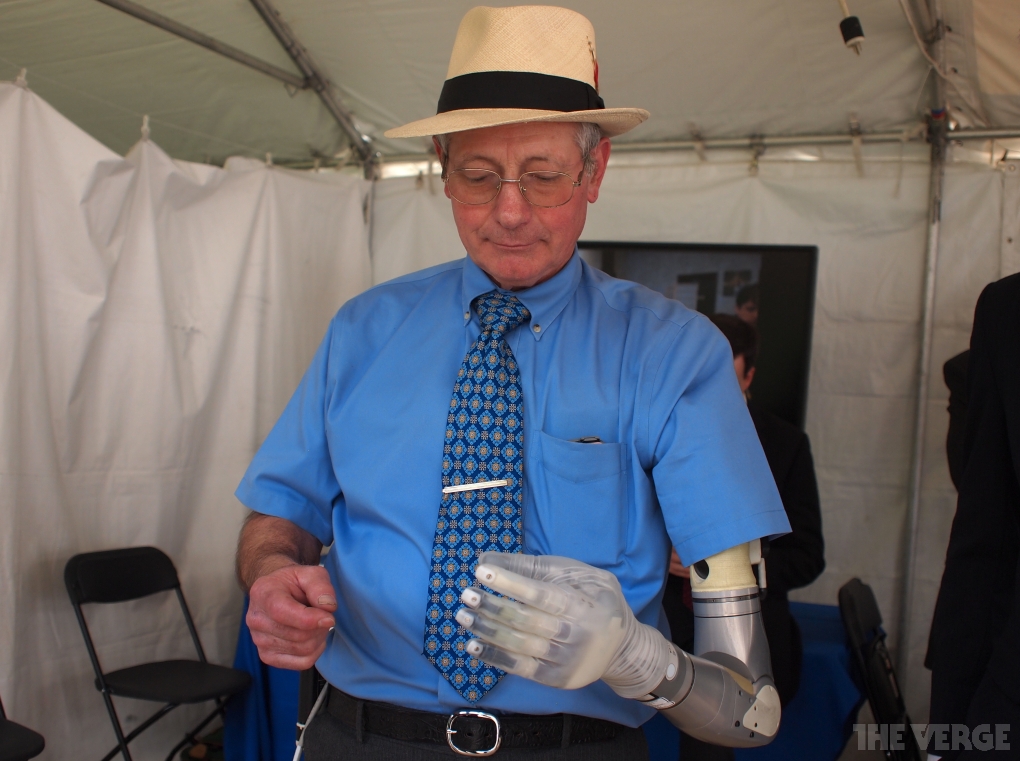The scary, wonderful future of the Pentagon’s science fair

ULTRA-VIS is an augmented reality system that overlays graphics on the landscape through a low-power, holographic see-through display.
The scientists at the Defense Advanced Research Projects Agency aren’t secretive, they’ll tell you — they’re just busy. But on Wednesday afternoon, DARPA put its work on pause and opened up to the press for a precious two hours. The agency that brought you the internet and GPS erected white tents inside the Pentagon courtyard and staged 112 simultaneous demonstrations as harried journalists rushed around trying to suck up as much information as possible before our handlers nudged us out.
In one tent, a smiling gentleman in a jaunty hat shook my hand with his prosthetic arm, its soft plastic fingers closing around my palm. That was the DEKA arm system, the ultra-dexterous mind-controlled prosthetic that was just approved by the Food and Drug Administration earlier this month. Its wearer, Fred Downs, the former director of the Department of Veterans Affairs Prosthetic and Sensory Aids Service, has tried almost every prosthetic on the market and says this one is the best. DARPA hopes to have it mass produced for soldiers who come back as amputees.
THE PROJECTS TACKLED LANGUAGE TRANSLATION, ANONYMOUS INTERNET BROWSING, CAR-HACKING, AND MORE
DARPA’s strategy is to invest its $2.8 billion budget in ideas that are high-risk, high-reward, and wide-ranging. Considering this is the agency that brought us Siri and the self-driving car, it should be no surprise to see projects all over the spectrum. The projects on display tackled language translation for face-to-face conversation, anonymous internet browsing, car-hacking, biometric passwords, big data, and more. There was an “unhackable” quadrocopter. There were educational games that teach kids fractions while teaching DARPA how to refine training techniques for soldiers. There was an augmented-reality helmet with a see-through screen over one eye, showing the wearer which route to follow by superimposing it on the landscape.

Fred Downs, former national director of the prosthetics division at Department of Veterans Affairs, demonstrates the DARPA-funded DEKA arm system.





